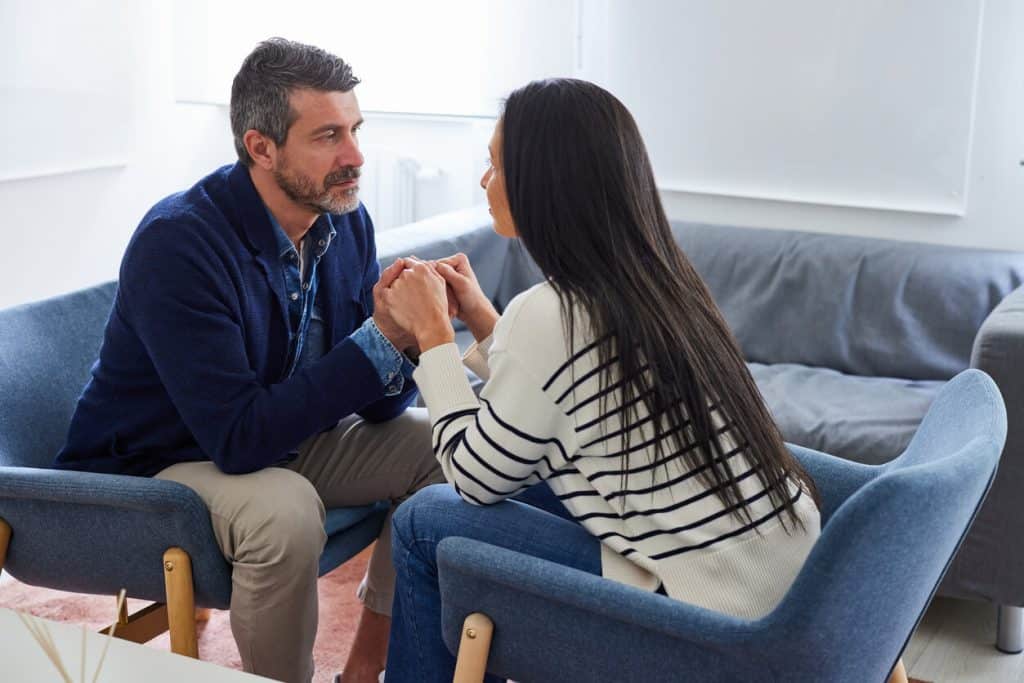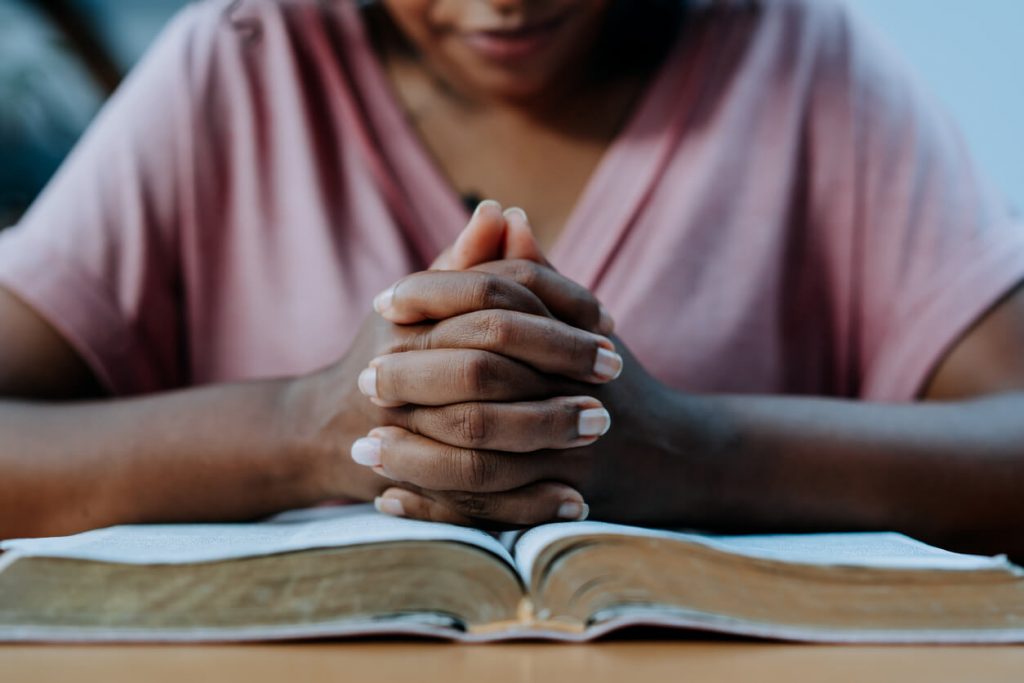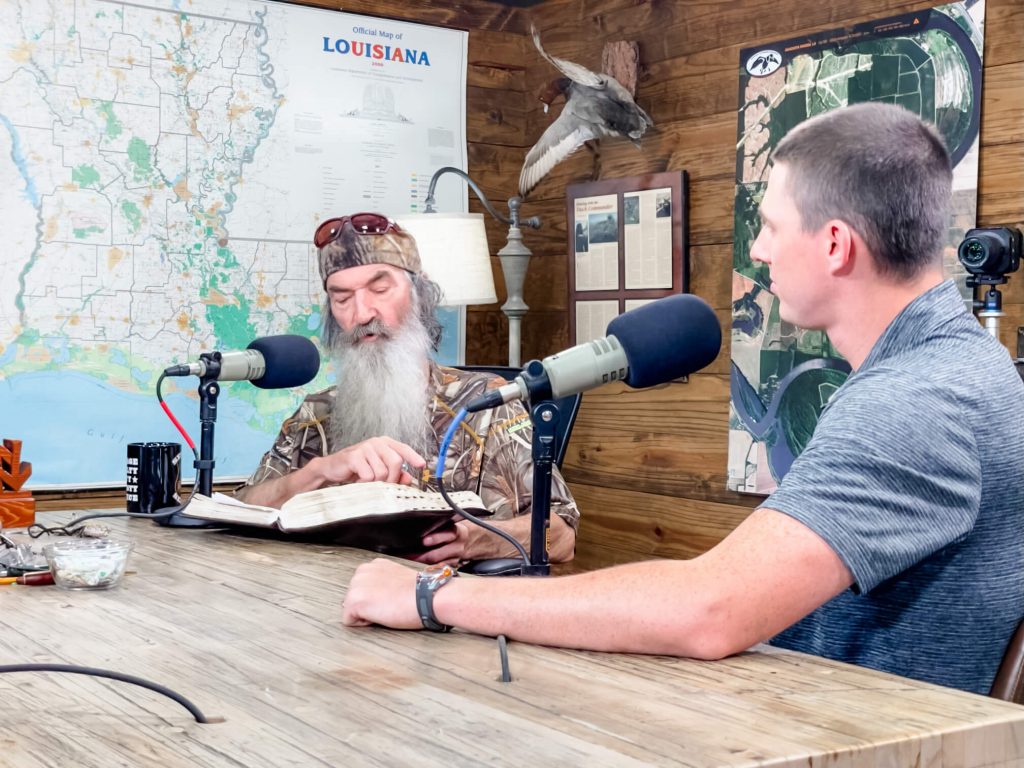Pornography works like a cancer: it infects everything it touches. This is especially true in marriage. When a husband (or wife) continually turns to pornography, it can destroy the intimacy and trust between them and their spouse.
About a year and a half ago I asked my friend Jon to write a guest post for us about his past porn addiction and the key turning point: the day his wife left him. After years of lying, sneaking around, inappropriate relationships with other women, and continual porn use, Nicole packed up most of their stuff, took their three sons, and left.
Jon wrote:
Did I deserve it? Without a doubt, I did. The seeds I had sown were being harvested. I vividly remember the deep, internal pain caused by total abandonment and utter hopelessness and despair. A sea of tears couldn’t appease it. […] As much pain as this caused me, it paled in comparison to the pain my wife experienced all those years. This was the only way, and we both knew it; it forcibly showed me that the cost is too high to keep it up any longer.
Jon found the help he needed and he and Nicole were later reconciled.
I had a chance to interview Nicole about her side of the story.
Luke: Early in your marriage you started noticing signs that your husband had been watching porn on your home computer. When you confronted him about it, how did those initial confrontations go?
Nicole: A well of fear and desperation led me to confront Jon on these activities, and at first he denied them. He had explanations for everything I found, and I wanted to believe everything he told me. Yet, something didn’t quite add up with these explanations, and I would push him about it until he finally confirmed the truth. This led to seeds of distrust from the very beginning of our marriage, not only me of him, but of myself and my instincts.
Jon is intelligent and quick-thinking. This leads him to be able to make quick decisions well, but also played out negatively in our marriage when these confrontations came up. He was quick to turn the conversation into issues that I struggled with that had nothing to do with the Internet, and verbally, he came out on top almost every time. It would take several “rounds” of me bringing the issue up to get real resolution, but both of us walked away damaged.
Luke: You eventually recommended to Jon that you go to counseling. What were all the reasons for that? What concerned you so much?
Nicole: I wanted to engage in counseling initially to have someone “neutral” help me verbalize to him what was so hurtful about his actions. And, we were stuck emotionally in our marriage, often more angry with each other than not. I knew from my parents’ example this wasn’t normal, and didn’t want to live married life this way. But I didn’t know what to do to fix it and wanted help.
I also started understanding what it is that leads people to wanting divorce…I didn’t want that for us, but was in so much pain emotionally, that if he wasn’t willing to work on it with me, I was pretty sure we would end up in that direction. We were living life independently: legally, we were married, but really, we were just two people living in the same house. Looking back, I see that I was giving myself emotionally to my girlfriends, my work, and my extended family, but with each confrontation about the Internet, I just slowly shut Jon out and didn’t give him access to the depths of my heart.
Yet, I continued to build my relationship with Christ and knew He didn’t want me to take a quick way out of this pain…I needed to really give the marriage everything I had before taking action on a divorce. For me, that meant going to counseling…together, and if Jon wouldn’t go with me, then I’d go alone.
Luke: When and how did you find out about Jon’s adultery?
Niclole: Adultery manifested itself in three ways in our relationship. I grew to understand this slowly and in phases.
- He maintained friendships with women that were emotionally inappropriate. One in particular began before we were even married, with someone he worked with in the church we attended at the time. I had huge red flags regarding her in my heart, I believe, due only to my God-given “women’s intuition.” But because I didn’t think he was physically unfaithful, I had no way to prove it, and because he was excellent at telling me what I wanted to hear, I brushed it off as me being overly sensitive. I thought maybe my expectations were too high of him, like I had of myself and others at times in other areas. It took quite a few years and some individual counseling for me to see that, in fact, this was another form of adultery. Further on in our marriage, I started noticing hushed phone calls behind closed doors and in his truck in our driveway right after he arrived home. His job requires multiple contacts, so even though I checked his phone for anything that jumped out at me, I couldn’t tell if any contacts were inappropriate.
- I actually found his visual adultery with porn also before we were married. This is difficult to admit, because I have to recognize the signs were all there and yet I didn’t have the courage to call off or postpone the wedding after all the planning work we’d put into “The Big Day.” Then, throughout our marriage, I repeatedly found evidence on our computer. I also knew he hadn’t cracked the habit when I would wake up at 2am, not have him in bed with me and be able to see the blue glow of the screen from under the closed office door. He also positioned the computer so that the back of it was facing the door, and if I would walk in on him, he could quickly change the screen before I could come around the desk to see it. What he didn’t realize was that I could see the screen color changes reflected on his face and in his eyes when he’d look up at me. He was also very defensive, both of his emotionally inappropriate relationships, and of his time on the computer whenever I asked about it.
- My family and I finally employed a private investigator to help us find some answers to what we suspected: physical adultery. Letters from female friends to him while he served in Iraq and then later, late nights arriving home at 5 or 6am suggested something had happened or was going on. However, Jon was so skilled at creating a smoke-and-mirrors lifestyle, I really never knew for sure if he’d been physically unfaithful. The private investigator used a hidden program on our computer, which showed us the incredible depth of Jon’s addiction to porn. Even though we knew he had a problem, we were blown away by what was revealed. Ultimately, this is what solidified for us that there was no way my husband was viewing these images and NOT having an affair, and he was still spiraling downward into his addiction.
Luke: As best as you understand it, how did his fascination with pornography contribute to all of his destructive behaviors?
Nicole: The destructive behaviors seemed to be fueled by either the desire to get the “high” again, or by guilt from knowing it was wrong and stress of trying to hide his secret lifestyle.
Luke: You eventually left Jon. What was the tipping point for you? Why did you decide it was time to leave?
Nicole: Two factors led to the tipping point for me once I realized I had a significant choice to make and that I did not have to stay in that relationship as it was.
First and foremost, I was concerned for the legacy of the lives Jon and I were leading for our sons. I believed Jon’s behavior was harmful to them emotionally and spiritually. I didn’t doubt for a second that he loved them…I absolutely knew that he did, but he wasn’t willing to see how his behavior was harmful to me or them. I believe I needed to act in behalf of them to take a different path than the one we were on as a family.
Secondly, I realized I needed to take a stand for what I knew was wrong. I loved Jon but I’d been enabling him for years, and I prayed for years that I wouldn’t have to be the one to take a stand…I was afraid of the consequences financially and emotionally. But it became clear that the many conversations, arguments and threats of leaving weren’t making a dent, and that with each confrontation, Jon just got smarter at learning how to hide his behavior. I also had praying family and friends walking alongside me who agreed this was the right path and supported my decision.
Luke: When did you start to notice a change in Jon? When did you start to believe that change was “real”?
Nicole: The nature of my leaving made a significant impact on Jon, and the days following it as well. The change was immediate. It was over two weeks after I left before I saw him again, and the first thing I noticed was that the continual hint of anger in his eyes was gone. We met at my grandparent’s house, with the kids, and I was pretty defensive. I was concerned with it being all an act, but then he told me that whether or not I’d take him back, he was initiating his own long-term changes and accountability. The fact that he was doing it for himself, and had initiated it himself spoke volumes to me. He’d already discovered Covenant Eyes, and had coffee with a leader of a men’s sexual addiction accountability group. He was also willing to respect my healing process and really work towards re-establishing the trust between us. In addition, he’d set up an appointment on his own for himself with the counselor he’d refused to see previously.
Luke: How have the accountability measures Jon put up in his life been a help to him and your marriage?
Nicole: Quite simply, they’re trust-builders. They continue to act as such, since the healing process is ongoing. They’re supports for him, but also for me. The Covenant Eyes reports spur on tough but good conversations, and his accountability group provides strong, solid male relationships that he can feel safe in, experience grace, and even lead. It’s been tough for both of us to realize that healing is not a checklist…it’s definitely an ongoing process. I think both of us would like to just check of a list of boxes and say, “There! Done!” and live happily ever after. But it doesn’t quite work that way!
. . . .
Nicole is a recovering perfectionist who loves being a wife, a mom to three boys, and keeping her foot in the door of the professional working world. She enjoys books, U2, a variety of films, and the great outdoors. Saturdays in the fall you will find her listening to or watching the University of Michigan football (Go Blue!), making applesauce, and eating chocolate at the same time. She;s passionate about being authentic, keeping family time a priority, being an intentional mom, and living a prayerful life.







My husband and I have been married over 30 yrs. It has been a long haul. I have been through the gamut of lies, promises, more lies, more promises, etc. Then, about 2 yrs ago, he told me everything and said he wanted to stop. I could tell he was serious this time. The facade was gone, the mask was dropped & I could finally see the real him. My husband too, always seemed to have a slight hint of anger about him all the time. But, I could see that the anger was gone from his face. His face was relaxed; he looked like a different person. He felt good about his unburdening. But me? I went through a whole host of emotions. I was happy that he was being truthful with me, for sure. But, I certainly was not happy about what I was hearing; it was truly awful. Now, here we are two years later. He really is doing well. I’m not doing so well, and I know why. You see, my husband quit on his own essentially. We do belong to an online group which is helpful, and we watch tons of videos together & really keep involved in these programs. However, he does not belong to any men’s group. We live in a very rural area & there are no men’s groups for addictions around here. So, he does not have an accountability partner. We do go to church & read the Bible together, especially about sexual sins. But something is bothering me terribly & I think it’s that I don’t feel he has taken enough responsibilty for his actions. What I mean is, I believe that I would heal much faster if I could see more of what he is doing on his own to work on his addiction. I think he needs to examine what brought him to addiction in the first place such as, past events, childhood, etc. I need to SEE more and hear less about the changes he is making in his life, so they will be permanent changes. In my mind, he just needs to do more, so I can see that he is taking the responsibilty. I can’t just depend on what he is telling me it isn’t good enough, and it isn’t helping me to feel like he is rechanneling his feelings for me and taking the needed steps to improve our marriage. Because I’m not seeing enough, I live everyday in fear and I guess a certain amount of mistrust. I don’t think my feelings are good for our marriage. I believe I need him to accept more responsibilty to ensure success in quitting his addiction & making our marriage a happy one. Any suggestions for me? Thank you.
Thanks for this, Sandy. It’s clear you’ve done a lot of thinking about what you’re feeling. One thing really stuck out to me, if I understood this correctly: you don’t feel like he is taking the needed steps to improve the marriage; you don’t feel like the emotional intimacy is really present. And THAT is so important! In fact, it’s so important I’m going to put it in capital letters.
RECOVERY IS NOT JUST ABOUT QUITTING PORN. IT’S ABOUT RESTORING EMOTIONAL INTIMACY IN THE MARRIAGE.
And I think you’re exactly right, that in order to be emotionally intimate with you, he’s got to get emotionally intimate with himself. (I do think those things can grow together. As your marriage becomes a safe place for both of you emotionally, the deep things that each of you struggle with will be easier for each of you to face. A good couples counselor can really help with the process of making your marriage safer for both of you.)
Behavioral change is just not enough. I think it’s hard for men to get ahold of that idea. There’s a lot of cultural pressure on men against being emotionally vulnerable. I wonder if he’s come across Surfing for God? My husband really appreciates that book.
As right as you are, though, he has to do this work HIMSELF.
Yes, you need him to accept more responsibility. But you can’t do that for him! And I think it’s a long, slow process of you keeping good boundaries while he figures out how to do that.
The only thing you can do is take responsibility for yourself. One of the things I see all the time around the issue of pornography in marriage is that men get a lot of help and attention for their behavioral (and sometimes emotional) needs, while the care for spouses very often lags behind. This disparity in emotion that you describe: he feels better, you feel worse–that’s really common. He’s getting free of the addiction, but as the crisis wanes, your emotions of 30 years begin to surface as the relationship is a safer place. Lots of women actually meet the criteria for PTSD when they’re in recovery. All that to say, the responsibility you can take is for YOU. Make sure you’re getting the support you need. I think you probably need therapy just for yourself. I know you’re in a rural area, but I’d suggest checking to see if you can find a therapist reasonably close by, someone who does grief work and can help you process through all these emotions.
I’ve tried to do some writing here on the blog about what it means to truly restore trust on an emotional level, and what it looks like when you’re on the same team in recovery.
Have a look at that and let me know what you think. Blessings on your journey to healing. Kay
I think this is an epidemic, my husband has an addiction. Says he’s never strayed, yet I’m hurting so badly inside all the time. He claims he only looks at it once in a while, but I see these sites on the computer two to three times per week. He says he’s not doing anything else. Just briefly looking long enough to get satisfaction and that’s all, but there are sex dating web sites. Revenge sex sites etc on the computer. He can perform in the bedroom and says it’s not my fault. I know it’s not my fault.
You are right to feel betrayed right now. No amount of porn use is justifiable. Has he said he wants to stop looking altogether or not?